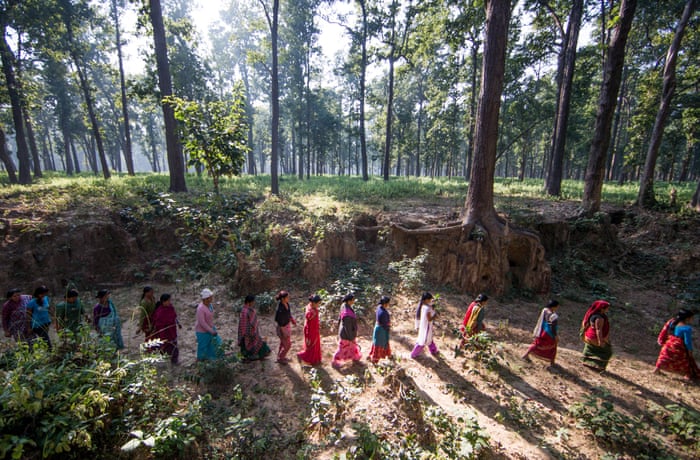

Conservation oriented community forestry is essentially a participatory process that requires strong technical assistance on both policy and implementation. Expanding the property rights of local communities over resources and empowering them with knowledge, information, resources, technologies, and required skills for forest management and institution building are basic building blocks for the community forestry. Gender and equity concerns are addressed from the program design so that the poor, women, and marginalized receive fair benefits from the program.
Legal rights over the resources, institutions, capacity, trust, and leadership,
It evolved from the community level, and is based on traditional uses of the forest by communities. This bottom-up approach is a great strength of the Nepalese model as it gives ownership and leadership to communities to decide both where to create a community forest and how to run it.